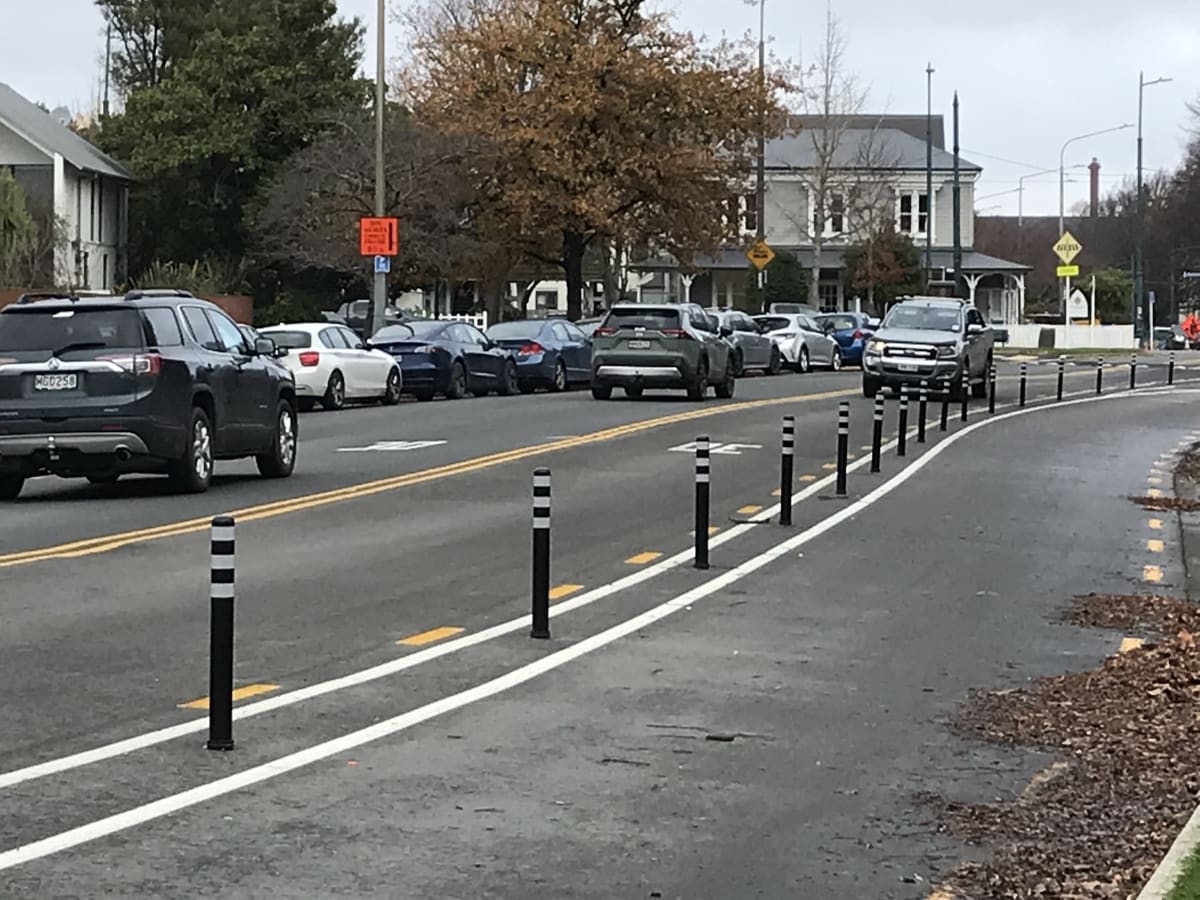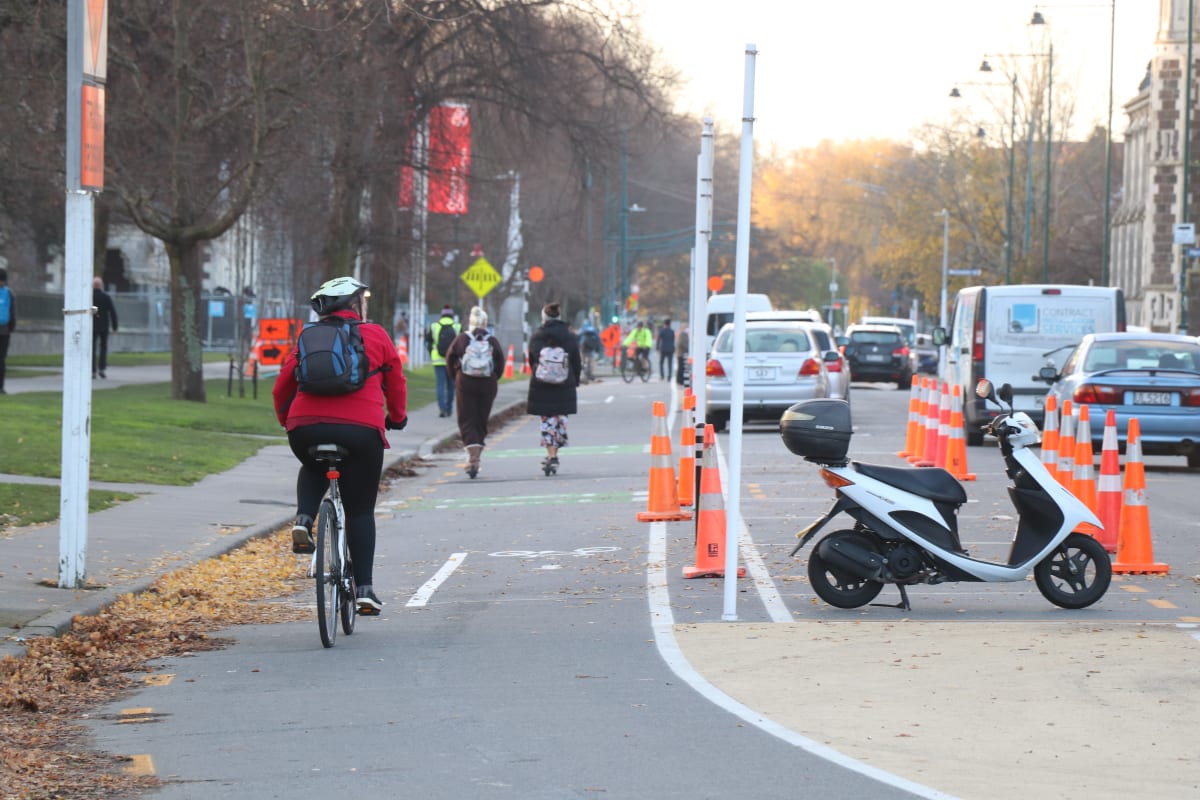
Comment: A memo to outspoken Christchurch councillors – read your memos
Christchurch’s council has huge headaches.
Residents face steep rates hikes thanks, in part, to a stadium cost-blowout. There’s also a furious debate about the partial sale of community-owned assets, and, in the east, anger about an illness-inducing stench.
City council staff are leaving in droves, and the residents’ satisfaction survey is only marginally up on last year’s all-time low.
So it may have raised eyebrows when, last month, some councillors became extremely exercised by a temporary cycleway.
READ MORE: * Beleaguered city council drops ball on pay * Christchurch sleepwalks towards partial asset sales
Staff needed to be reined in, raged Mayor Phil Mauger in The Press. “They are running amok in my view.”
Councillor Aaron Keown called it “really, really sneaky”, and his “ropeable” colleague James Gough said it was “quite devious”.
What caused this inferno of invective? The installation of a temporary, two-way cycleway along Rolleston Ave and Park Terrace, mainly to improve safety during the redevelopment of Canterbury Museum. As part of the works, a lane of traffic was removed from Park Tce under temporary traffic management.
The outrage seems to be in two directions. Mauger didn’t know the work was happening (and accused the “anti-car brigade” of “trying to create congestion”). Gough thought councillors would make the final decision.
Councillor Sara Templeton defended staff, saying they provided memos about the proposed temporary cycleway. She fumed on social media: “Read your agendas, pay attention to presentations and maybe you’ll know what’s going on.”
Meanwhile, Celeste Donovan said staff were being misrepresented.

There are several strands to unravel but let’s start at the top, with leadership.
If your staff are maligned as sneaky and devious, what to do?
On May 22, Newsroom asked if the comments had prompted chief executive Dawn Baxendale to write to transport staff, in particular, or staff in general. Also, if she’d had any correspondence with the mayor and councillors.
Twenty working days later, the council provided an email written by Baxendale to all staff on May 23 – the day after our request.
It started with an apology for not being able to send her regular Friday update the week before. “But I want to highlight how disappointed I was to read in the media the comments by the mayor and councillors regarding staff going beyond their delegated authority.”
The matter was referred to the Health and Safety Committee.
Councillors and staff need to show mutual respect, Baxendale’s email said, but tough conversations must be had, “which can be a challenge”.
“I raised my concerns with the mayor and discussed the impact this has had on staff. Another meeting was then held with the mayor, councillors, the transport leadership team, Mary Richardson and I to discuss this in more detail and to look at how we can move forward.”

The council sent Newsroom a copy of the May 17 meeting invite, subject line: “Transport matters”.
Baxendale tells Newsroom via email: “The meeting on 17 May was an opportunity for senior transport staff and elected members to discuss the Park Terrace cycleway trial and how recent media coverage about this had affected them.
“The outcome was we agreed to look at ways of working together, so that elected members could ask questions of staff about any issues or concerns with key transport projects.”
A person who attended the meeting told Newsroom it was unproductive. They couldn’t remember Baxendale taking a firm view on the councillors’ comments, the councillors who criticised staff arrived late, and Mauger justified what he said but didn’t apologise.
It was Richardson, apparently, who stood up for staff.
This gels with what Richardson said at a public meeting earlier this month: that it was unfortunate elected members criticised staff when they didn’t have a right to reply.
Days earlier, Mauger told The Press he wouldn’t apologise to staff because he didn’t believe he’d done anything wrong.
“If I don’t speak up I am ignoring the public who put me there to speak on their behalf.” – Councillor Aaron Keown
There were two cycleway-related votes at a tense June 7 meeting, attended by hi-vis-wearing cyclists, and cycleway opponents.
The first motion, put forward by Gough, to immediately rip up the cycleway – before public consultation had finished – was lost 6-10. The second, from councillor Sam MacDonald, to have councillors review staff decisions made for temporary traffic management, failed 8-9.
Newsroom asked Mauger, Gough, and Keown if they stood by their comments made last month. If not, would they apologise?
“As I have said before, my comments came from a place of frustration,” says Mauger, via email.
He doesn’t say if he stands by his comments and doesn’t apologise. Rather he’s “drawn a line under this”.
“We had the vote a fortnight ago and council decided to continue the trial, so that will run its course and report back to the community board.
“I’m working on ways to work better with staff going forward so we can focus on the main issues in front of us today.”
Keown does stand by what he said. He was “merely voicing the frustrations of many, many residents at a transport system they do not rate highly”.
(This misses the point that the criticism of the comments is less about advocating for a better transport system, and more about lambasting staff directly when they can’t respond.)
His email notes recent survey results which show the public isn’t happy with decision-making or the state of the city’s roads.
“If I don’t speak up I am ignoring the public who put me there to speak on their behalf. You may find the problem here is there is a big chunk of the population that feel they are not being represented at the council table.”
Templeton stands by her comments, criticising fellow councillors. She’s glad the Health and Safety Committee is considering the issue. “I know that the chair of the committee is taking it seriously, and am looking forward to seeing what comes of it,” her email says.
Many memos
Now, to the substance. Should the cycleway work have been a surprise? In a word, no.
A memo from two senior transport engineers to elected members and Baxendale’s executive leadership team (ELT), written in August last year, said cyclists would be moved from a shared path to a two-way, on-road cycleway on the western side of Rolleston Ave because part of the shared path would be used by the museum during its multi-million dollar redevelopment.
There were ongoing capacity and safety issues with Rolleston Ave’s shared path, the memo said, and this was a chance to trial an alternative layout.
A report would go to council “once the temporary works are in place”.
A January update said it was proposed to extend the cycleway along Park Tce to Salisbury St, where a bridge connects to Hagley Park, to improve crossing safety, particularly for groups of school children.
Discussions had already been had with nearby Christ’s College, and council staff had been door-knocking local residents and businesses since December 5.
Plans for the cycleway were included in the agenda for the council’s March 14 meeting.
A council “Newsline” story mentioned it on March 29, with a further reminder on April 13.
Councillors were briefed on May 16, after construction started.
The latest staff memo, from last week, said congestion on the shared path meant more people were biking along Park Tce – an area with faster vehicle speeds, with narrower lanes than best practice provided by Waka Kotahi.
Once the trial of the two-way, on-road cycleway has been evaluated, including surveys and traffic counts, a report will go to next month’s Waipapa Papanui-Innes-Central Community Board meeting, suggesting a five-year fix.
After all the drama and hyperbole, it turns out it’s the community board that should be upset.
Deputy chair Simon Britten says, via email, it is unfortunate the board didn’t get the August and January staff memos, and the March report went to the council, not the board.
The parking restrictions voted on were actually the board’s responsibility. Staff apologised for the muck-up.
Britten’s looking forward to receiving next month’s report, which means the board’s delegated authority from the council “is now being respected”, he says.
There’s still a wrinkle to iron out. Britten thinks the elected council should apologise for making decisions in March that were actually the board’s to make.
Could that be labelled “devious” or “sneaky”? Whatever you call it, an apology seems unlikely. The council has bigger headaches to worry about.







